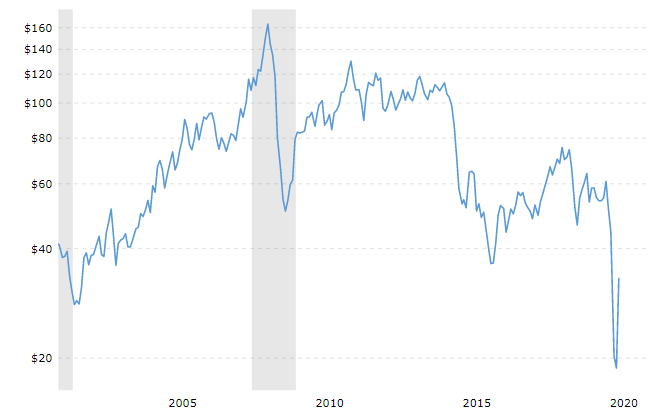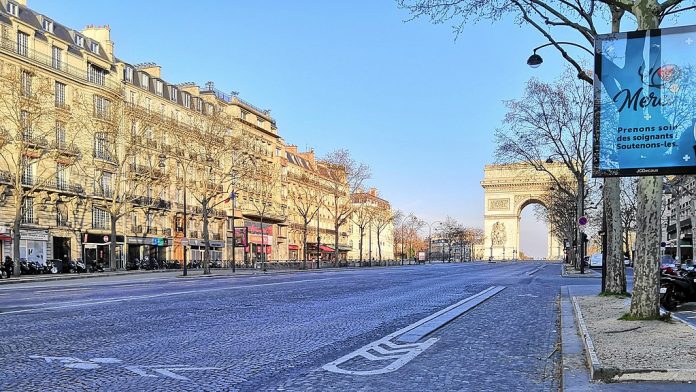After months of the COVID crisis, China’s once-mighty and enviable position is feeling the strain of non-stop Western and non-Western attacks, international economic paralysis as the world copes with the worst global recession while it faces a common enemy.
The COVID crisis is a speed crisis: if this pandemic had occurred in China during the time of camels, it would never have reached the Americas and its arrival in Western Europe would have taken several months. Even in the age of steamboats, this pandemic would never have caused so much damage in such a short time. Due to the speed of modern human movement only requiring a quick flight from China to Paris, London, or New York, the pandemic spread rapidly and appeared everywhere before the public health organizations realized what was happening.
Another speed problem: European and American democracies had taken no special preventive measures when China was dealing with COVID, and they severely underestimated its impact, counting mostly on the WHO to enact preventive measures. In some nations, democratic procedures have taken excruciatingly long to produce decisions. Combine the high speed of coronavirus swarming versus the low speed of state reactions — the result is the Global Lockdown.
The Global Lockdown is highlighting what was foreshadowed after the 2008 financial crisis; namely the rise of regional powers and a multi-polar world that threatens the hegemonic position of the U.S. already shaken by the aforementioned global financial crisis and exacerbated by President Trump’s actions since 2017.
China came out a winner of the 2008 financial crisis along with Russia, both benefiting from the high oil prices during the first quarter: “In the first half of 2008, there was room for countries like Russia with prices reaching over $140 [per barrel] to recover and expand its production and refill the state coffers, allowing Putin to advance his geopolitical ambitions and promote projects like the Eurasian Economic Union, and continue to keep Russian hegemony over the supplies of oil and gas to an important part of Europe, especially Germany and Eastern and Central Europe,” José Chalhoub, a Venezuela-based oil market analyst, said by telephone.

The biggest loser after the 2008 financial crisis is the U.S., with the historic bankruptcy of the investment bank Lehman Brothers and the highest unemployment rate in more than six decades: “Worst year for jobs since ‘45” titled CNN Money in January 2009.
The Washington Post reported in 2018 that the effects of the financial crisis continued throughout the decade despite the various economic stimuli. President Trump’s stubbornness in wanting to ‘Make America Great Again’ and his disengagement from the international arena and supranational bodies have undermined the U.S.-dominated world order. What’s more, as the U.S. disengages from one front, China and Russia engage to fill the void.
Meanwhile, the European Union has been torn apart by internal struggles with movements of independence (e.g., the Catalan case) that culminated with Brexit. The crisis caused by the coronavirus is the coup de grâce, as the pandemic has widened the divide between the countries of Southern and Northern Europe. This divide resulted in a delayed reaction to deal with the coronavirus, culminating in the tragic consequences that the world has seen (Italy, Spain, and France being hit very harshly). As Italy was collapsing under its death toll and was refused aid from Germany, China hastened to respond generously and promptly to the urgent cry for help (a crisis is a tremendous opportunity to exploit). This quick response reinforced the China-Italy relationship that had recently hit a high point when Italy joined the Belt and Road Initiative in 2019. With that agreement, Italy became “the first developed economy to sign up to China’s global investment program which has raised concerns among Italy’s Western allies,” as reported by the BBC. Italian resentment is fueling the push to leave the EU boat, especially now that Italy can count on China’s help.
Russia has also been stricken, and twice to boot. On the one hand, the 2020 fall in oil prices means that a crisis of liquidity is looming. This has a direct impact on Russia’s budgetary revenues, which are heavily reliant on oil (over 50% as presented by the U.S. EIA). This situation only further bogs down the Russian economy, which shrank by a quarter in April. On the other hand, the COVID crisis, which President Putin ignored at the beginning, has plunged the country into an unprecedented health emergency and has seen a historic drop in Putin’s approval rating according to a poll conducted by the independent Levada Center polling agency.
In Russia’s quest to regain its position on the world stage and to thwart American ambitions, Moscow has no choice but to align itself with its “frenemy”; China. Xi’s China, which has surmounted the pandemic, is in its phase of economic recovery. Beijing is reassessing its world-factory status in reaction to attacks from the West and the rest of the world. Western and some non-Western countries accuse China of mismanaging the COVID crisis and manipulating the WHO. With Australia leading the pack, 62 countries (including Indonesia, Japan, South Korea, Turkey, Russia, and South Africa) have “backed a joint Australian and EU push for an independent inquiry into the coronavirus outbreak,” as reported by ABC news.
In addition to diplomatic actions, the attacks on China are of two types. The first consists of rejecting Chinese products, as has been done by Spain, the Netherlands, and Turkey, rejecting Chinese face masks and COVID-19 test kits sent to help them during the COVID crisis, specifically questioning their quality. The second type of attack is the rise of protectionism, as is the case for the UK. London wants to end the country’s reliance on China for medical supplies and is working (just in case) on ways to ‘repatriate’ key industries, as stated by Boris Johnson.
Although China’s reputation has taken a hit, it can cope, thanks, amongst other things, to its position as the world’s highest forex reserve; a good part of which is held in U.S. dollar-denominated financial assets such as U.S. Treasury securities. This gives China the wherewithal to pursue whatever endeavor it wants, despite the drop in reserves experienced in April because of the pandemic.
China will use the Belt and Road Initiative, put on hold during the pandemic, to help many countries using its ‘COVID diplomacy’ and then the resumption of slowed or stopped trade relations. When the need arises, non-Western countries will undoubtedly go beyond anti-Chinese propaganda and meet their needs first and foremost.
The COVID crisis is a game-changer in the tug of war initiated by President Trump in his opposition of China, a showdown that has so far benefitted the latter. The concept that the center of the world is in Asia −and not in the West− has been reinforced.
All roads lead to Beijing. Whether we like it or not, whether we like China or not, whether we accept it or not, the West and the rest of the world should not stick their heads in the sand and ignore the fact that a powerful China is here to stay. It has the backbone to do so by cautiously navigating the post-COVID uncertain future.
The question that then arises is how to overcome geopolitical rivalries to galvanize positive international cooperation that benefits everyone and accept the coexistence of several regional powers without having one dominating the world?
The answer is far from simple, especially when put in its complex context: a disunited Europe facing common threats such as migration, terrorism, right-wing reaction, and Trump’s ambivalence; American elections with an uncertain outcome; a CCP agitated by various internal tensions, not all in favor of Xi Jinping; a disillusioned Russia under Putin’s regime; an India under Modi’s ultranationalist yoke; a sclerotic Japan with militaristic ambitions bogged down in persistent socio-economic problems; an Iran torn between more and more frequent and close internal social pressures and external attacks from neighboring countries supported by the U.S.; a Turkey that places its pawns in the MENA chessboard; an underestimated Morocco that is waking up and has ambitions to become an African power; and a Brazil that has faltered under the populist wave…
This view describing post-COVID international relations presents a multi-polar world in which the U.S. represents only one power and having only a North American influence. A drained Europe will have pointless arguments between 1) Eurosceptics and Eurocentrists; 2) those who want to remain under the American umbrella and those who want to be on good terms with China, and 3) those who wish to preserve relations with Russia and those who want to punish it. Asia will be bipolar with China on one side and India on the other. Africa, embittered by the EU’s response with regards to this health crisis, will definitively sever ties with the former colonizers and turn further towards China. Certain African powers (e.g., Morocco, Nigeria, Côte d’Ivoire, and Kenya) will play the role of intermediaries between the rest of the world and the African states.
The COVID crisis will have an indirect consequence — the promotion of populism in democratic regimes in which individual freedoms will be compromised. The State Panopticon will be reinforced by instant, real-time surveillance of citizens. Information technology will be used to control everyone. The WHO will have to review its mandate to be an independent and proactive observer of the health of the world’s citizens. The movement of people will be thoroughly analyzed and assessed. Trips will be organized and managed differently to avoid a pandemic 2.0 with the introduction of a medical passport in the form of a chip implanted under the skin that will become the norm. This scenario may seem far-fetched, but it is a reality that humanity may have to face sooner or later. Only time will tell.
The views and opinions expressed in this article are those of the author.

Dr Fatima-Zohra Er-Rafia is a lecturer at HEC Montréal and Polytechnique Montréal, a consultant, and an independent researcher. She holds a PhD in Business Administration with a focus on China and Japan. Dr Er-Rafia specializes in international affairs, geopolitics, cross-cultural management, and strategy. Her focus is on Weberian sociology, politics, economics, and history, and she uses aspects of all these disciplines to study Asia. Dr Er-Rafia previously served as a Corporate Strategist at Desjardins Group and as a Management Consultant, Director of Operations, and a Strategy and Business Development Consultant at Stratégies Internationales. She provides training for Business Executives at the international level and regularly gives presentations about Asia’s geopolitics, and its business, management, and culture. She is the recipient of several honors and awards and author of two book chapters on China and Japan, several articles and business case studies. For more info: www.fatimaerrafia.com


